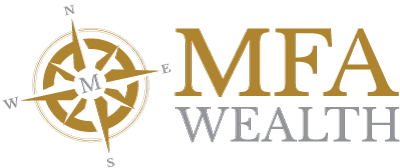 USA Today: ‘Doing an annual financial checkup can help you save‘ by Adam Shell Nov. 1, 2015
USA Today: ‘Doing an annual financial checkup can help you save‘ by Adam Shell Nov. 1, 2015
If there’s one lesson from this year’s wild ride on Wall Street, it’s this: Stuff happens, and it’s better to have a plan in place before unexpected events turn your financial life upside down.
Thanksgiving is right around the corner and the hectic holiday season is coming soon, so there’s no better time to get your money matters in order and nail down a 2016 game plan.
“Now’s the time,” says Chris McMahon, president and CEO of Pittsburgh-based McMahon Financial Advisors. “Things get too hectic around the holidays, and it’s tough to review financial things in detail.”
Money stuff you need to address includes your investment portfolio, debt load, retirement savings and insurance needs.
Here’s a checklist of what your annual financial checkup should include:
- Do a “risk tolerance” profile. Were you a basket case when the stock market cratered this summer, suffering its first 10%-plus drop in four years? If so, your portfolio might be too risky for you. The fix: “Perform a personal stress test to determine if you can stomach, say, a 25% loss in your portfolio,” McMahon says.
- Rebalance your portfolio. Is your mix of stocks, bonds and cash out of whack? Now’s the time to make sure you have the proper helpings of stocks and other financial assets, says Nancy Coutu, co-founder of Money Managers Financial Group, a financial planning firm based in Oak Brook, Ill. The fix: “Rebalance and get back to your allocation,” Coutu says.
- Conduct a “debt inventory.” If you owe too much money, map out a plan to pay down debt. “Debt can creep up on you,” McMahon says. The fix: “Develop a debt elimination strategy,” he says.
- Bolster retirement savings. Nurture your nest egg, Coutu advises. The fix: Take advantage of a Roth individual retirement account, she says. Roth IRAs, while funded with post-tax income, don’t tax gains. Coutu’s recommendation: Fund your 401(k) first, but only up to the amount needed to get all of your company’s match. Next, fund your Roth IRA. If any funds are still available to save, direct those dollars into your 401(k), which is funded with pre-tax income but is subject to taxes on gains. “Most savers contribute the maximum to their 401(k)s and forget to contribute to Roth IRAs,” Coutu says.
- Grade your kid’s college fund. Buying and forgetting 529 college investment savings plans isn’t an A+ strategy, McMahon says. Why? If your kid is within a year or two of college and the 529 plan is 100% in stocks, a market downturn could erase savings at precisely the wrong time. The fix: “Check how 529s are invested and whether it’s appropriate,” McMahon says. If the 529 plan is too stock heavy, pare risk back by shifting to more cash and bonds.
Other financial moves to consider: Dust off the résumé so you can react quickly to a job loss. Make sure you’re properly insured. Shop around for the best health care plan. And make sure you have an emergency fund equivalent to, say, roughly six months of expenses.
“Financial housekeeping and planning now can be the difference between having a successful retirement or not,” McMahon says.
